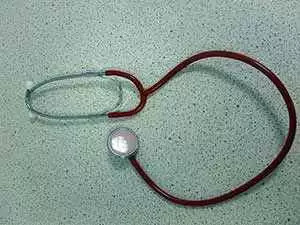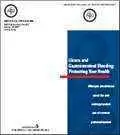Celiac.com 01/02/2013 - Doctors use capsule endoscopy to assess the small bowel in a number of intestinal diseases, including celiac disease. The main advantage of capsule endoscopy is that it allows for complete visualization of the intestinal mucosal surface.
 A team of researchers recently set out to investigate whether capsule endoscopy can predict the severity of celiac disease, and detect celiac disease complications.
A team of researchers recently set out to investigate whether capsule endoscopy can predict the severity of celiac disease, and detect celiac disease complications.
Celiac.com Sponsor (A12):
The research team included M. Barret, G. Malamut, G. Rahmi, E. Samaha, J. Edery, V. Verkarre, E. Macintyre, E. Lenain, G. Chatellier, N. Cerf-Bensussan, and C. Cellier. They are affiliated with the Assistance Publique-Hôpitaux de Paris, Hôpital Européen Georges-Pompidou, Service d'Hépato-gastro-entérologie, and the Université Paris Descartes, Sorbonne Paris Cité, Faculté de médecine, both in Paris, France.
For their study, the team reviewed medical files for nine patients with symptomatic celiac disease, eleven patients with refractory celiac disease type I (RCDI), 18 patients with refractory celiac disease type II (RCDII), and 45 patients without celiac disease who received both capsule endoscopy and upper endoscopy or enteroscopy.
To properly diagnose the type of celiac disease in the patients, the researchers used a centralized histological review, flow cytometry analysis of intraepithelial lymphocytes, and the analysis of T-cell receptor rearrangement by multiplex polymerase chain reaction.
A total of 47 capsule endoscopies were administered for the 38 celiac patients: ten for the patients with symptomatic celiac disease; eleven for patients with RCDI; and 26 for RCDII patients. Another 47 capsule endoscopies were administered for the 45 non-celiac patients were retrospectively reviewed.
They found that patients with celiac disease had more villous atrophy, and more numerous, or distally located ulcers than the control subjects.
They also found that, in celiac disease patients, capsule endoscopy was of acceptable quality in 96% of cases and was complete in 62% of cases.
Moreover, the concordance of capsule endoscopy with histology for villous atrophy was better than that of optic endoscopy (κ coefficient =0.45 vs. 0.24, P<0.001).
Extensive mucosal damage on capsule endocscopy was associated with low serum albumin (P=0.003) and the RCDII form (P=0.02). The also detected three cases of overt lymphoma by capsule endoscopy during the follow-up.
Overall, the results show that capsule endoscopy provides a sufficient match with histology and nutritional status in patients with symptomatic or refractory celiac disease. Lastly, capsule endoscopy may predict the type of RCD and enable the early detection of overt lymphoma.
Source:
- Open Original Shared Link






Recommended Comments